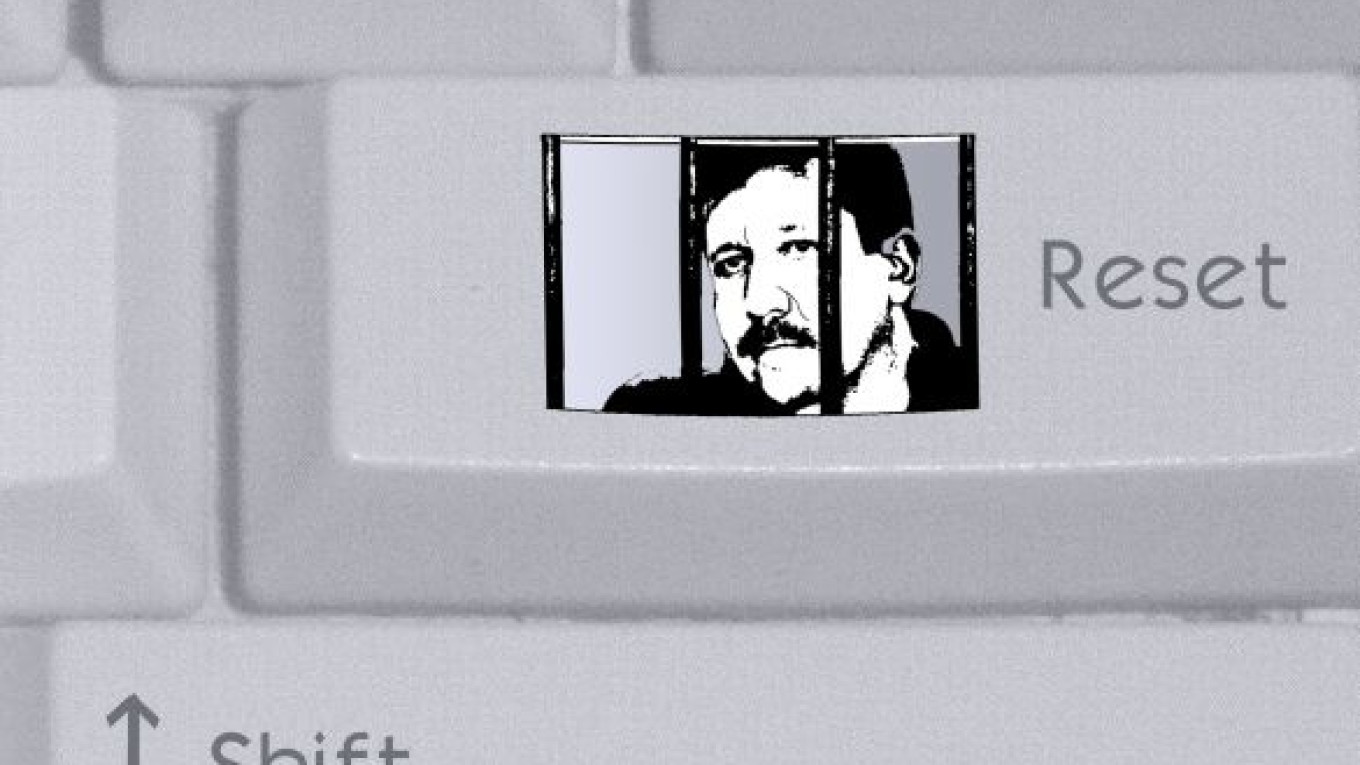Russia has heaved a sigh of relief that Russian businessman Viktor Bout (not “suspected arms dealer,” since everyone is presumed innocent unless proven guilty in court) was not extradited from Thailand to the United States on Wednesday as earlier planned.
The problem is that the Bout case is an unfair and unfriendly gesture initiated by the United States. Bout must be released from his long and illegal detention.
Let me explain.
Bout, a 43-year-old former Russian army officer, was arrested in March 2008 in Bangkok in a sting operation at the request of the United States, which accused him of illegally trading arms. Thus, he has already spent nearly 2 1/2 years behind bars without any court ruling on whether he was directly involved in any sort of wrongdoing.
Furthermore, his wife, Alla, has complained that he is undernourished because he only gets meals twice a day. The Russian Consulate in Thailand has demanded that he be transferred to a larger cell having some other inmates and be treated fairly.
Viktor Bout has denied all charges, saying in an interview in February that they appeared “to be a response to my refusal to cooperate with U.S. special services and because of unfair competition from Western companies, and, in particular, from companies controlled by the CIA.”
Bout also said he was a victim of “a political chase that has lasted for many years.”
In August 2009, the Bangkok Criminal Court ruled in Bout’s favor, denying a U.S. extradition request because of lack of evidence and because it believed that the case was politically motivated. But the United States appealed the ruling and filed new charges against him. On Friday, a Thai appeals court ruled that Bout must be extradited to the United States within three months. His Thai lawyer said the ruling was solely on the merits of the extradition case and did not consider whether Bout was innocent or guilty of charges filed in the United States. The lawyer also noted that the new charges could prevent the extradition because a new case might have to be opened in Thailand.
Bout’s Russian lawyer said in an interview with Ekho Moskvy radio that his client was innocent and promised to do his utmost to secure his release from prison.
Washington is concerned that the extradition order will expire and Bout will be released from prison. Consequently, the United States is trying to withdraw the new charges in a bid to speed up his extradition.
Russia reacted strongly to Friday’s court decision. Foreign Minister Sergei Lavrov called it unlawful and politically motivated, suggesting that it was made to appease Washington. He also said Moscow would seek Bout’s repatriation to Russia.
The same day, the Foreign Ministry said in a diplomatically balanced but strongly worded statement that it was “extremely bewildered and disappointed” to learn of the extradition decision. Incidentally, the form of the statement — officially called “A Statement by the Russian Foreign Ministry” — was intentionally selected to highlight the issue. It is the highest in political value, as other forms of the ministry’s official reaction are called “Commentary” or “Press Release” and carry less political significance.
Moscow argues that the verdict appears highly questionable because the Thai Criminal Court last August found that the Americans had not provided sufficient proof of Bout’s guilt. Moscow also says Bout never committed any illegal acts on Thai soil and notes that Thai law enforcement agencies have dropped all charges against him.
Russia’s concerns were also personally delivered by a Russian deputy foreign minister to the Thai ambassador in Moscow on Friday.
Under the Russian Constitution, any Russian citizen is presumed innocent before a legal verdict is issued (Article 49). The Constitution also prohibits the extradition of any person to a foreign state over his or her political convictions (Article 63). As such, the Foreign Ministry has provided Bout and his family with complete legal and consular aid over the past 2 1/2 years. The Russian side has also promised to continue to offer Bout all possible assistance with the ultimate aim of securing his release and return home.
Taking into account Moscow’s firm support of Bout, who remains innocent under U.S., Thai and Russian law, the ballyhoo created by Washington over him may inevitably effect Russian-U.S. relations to the detriment of the U.S. effort to “reset” them.
The case is unfair, and Bout must be freed.
? Vladimir Kozin is deputy director of the information and press department at the Foreign Ministry. The views expressed here are his own.
A Message from The Moscow Times:
Dear readers,
We are facing unprecedented challenges. Russia's Prosecutor General's Office has designated The Moscow Times as an "undesirable" organization, criminalizing our work and putting our staff at risk of prosecution. This follows our earlier unjust labeling as a "foreign agent."
These actions are direct attempts to silence independent journalism in Russia. The authorities claim our work "discredits the decisions of the Russian leadership." We see things differently: we strive to provide accurate, unbiased reporting on Russia.
We, the journalists of The Moscow Times, refuse to be silenced. But to continue our work, we need your help.
Your support, no matter how small, makes a world of difference. If you can, please support us monthly starting from just $2. It's quick to set up, and every contribution makes a significant impact.
By supporting The Moscow Times, you're defending open, independent journalism in the face of repression. Thank you for standing with us.
Remind me later.


